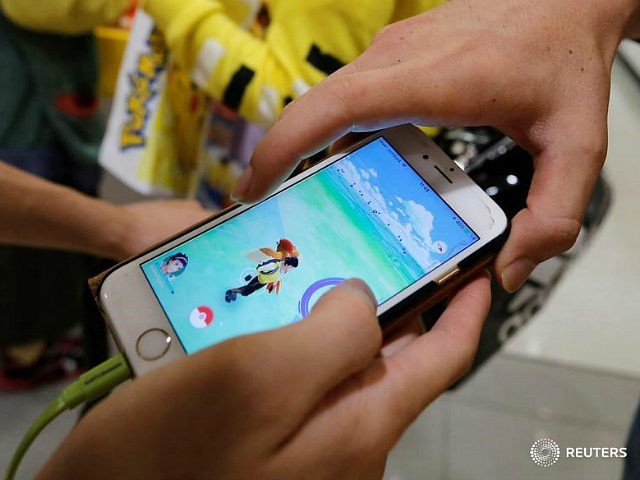The government of Moscow has announced it will soon release a mobile phone game inspired by Pokemon Go that replaces the titular monsters with historical monsters, like Ivan the Terrible. The game is intended to channel interest in Pokemon to nationalist fervor.
The awkwardly named “Get to Know Moscow. Photo” application, a press release from Moscow City Hall notes, will use the same augmented reality technology to place Russian historical icons throughout the city. Players will walk the city looking to “catch” cosmonaut Yuri Gagarin, Soviet rock star Viktor Tsoi, and tsars like Peter the Great.
“By the end of August, people will be able to catch and take a selfie with [deceased Russian rock musician] Viktor Tsoi, Yury Gagarin, Alexander Pushkin, Pyotr Chaikovsky, [founder of the first Russian university] Mikhail Lomonosov, Ivan the Terrible, Peter the Great, Napoleon Bonaparte and the tsar Aleksei Mikhailovich,” Moscow’s website boasts.
Selfie photos are extremely popular in Russia, so much so that the police released a “safe selfie” guide to teach residents how to take selfies without endangering their lives.
The move appears to be an attempt to channel the global popularity of Pokemon Go, based on the 1990s Japanese Nintendo game, into Russian patriotism, recalling major successes in Russian history. It also appears to be a way to replace the Pokemon Go app itself, as numerous Russian officials have derided the game as a potential national security threat. Others have called the game an instrument of Lucifer.
“It feels like the devil arrived through [Pokemon] and is trying to tear our morality apart from the inside,” Senator Frants Klintsevich of Vladimir Putin’s United Russia Party said of Pokemon Go last week, warning that playing the game could lead to “promiscuity.”
Aleksandr Mikhailov, a retired major general of the Federal Security Service (FSB), warned that Pokemon Go could be a CIA project. “I’m starting to suspect that intelligence services might have contributed to this app,” Communications Minister Nikolai Nikiforov told reporters last week.
The head of the St. Petersburg Orthodox Cossack Society Irbis, Andrei Poliakov, said Pokemon Go “smacks of Satan.”
Pokemon Go has rapidly become a thorn in the side of illiberal nations, particularly Islamic ones. In 2001, Egypt’s al-Azhar University, the most prestigious academic institution in Islam, issued a fatwa against Pokemon generally for, among other sins, promoting “evolution” and “Zionism.” Following the release of Pokemon Go, Abbas Shuman, the head of al-Azhar, reminded the devout of this fatwa. “This game makes people look like drunkards in the streets and on the roads while their eyes are glued to the mobile screens leading them to the location of the imaginary Pokemon in the hope of catching it,” he said in a statement.
In Saudi Arabia, a similar fatwa against the “Zionist” Japanese cartoon remains in effect from 2001, but authorities have insisted that a new fatwa specifically decreeing Pokemon Go haram has not been issued. Nonetheless, Saudis have been arrested playing Pokemon Go and authorities have warned against the game.
Online one government have vocally promoted Pokemon Go, encouraging players to visit specifically to play: the city government of Rio de Janeiro, the embattled host city of the 2016 Summer Olympics. “Hi Nintendo,” Mayor Eduardo Paes wrote on Facebook, “There are 23 days to go for the Rio 2016 Olympics. The whole world is coming here. You should come too!”

COMMENTS
Please let us know if you're having issues with commenting.